New Immigrant Inflow – Is Taiwan Ready?
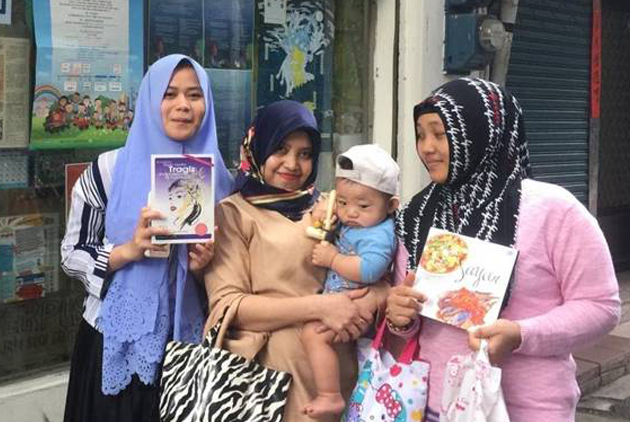
Source:CommonWealth Mazagine
In this article from March 2003, CommonWealth Magazine focused on the surge in the number of spouses from mainland China and Southeast Asia in Taiwan and looked at whether Taiwan was ready to welcome a new multi-ethnic, multicultural, and diverse society.
Views
New Immigrant Inflow – Is Taiwan Ready?
By Aili YangCommonWealth Magazine
In one corner of the Taipei train station, a worker at a branch of Philippines-based Metropolitan Bank & Trust (Metrobank) is busy counting NT$1,000 notes as an Indonesian caregiver prepares to remit home the NT$92,000 (equal to the monthly salary of a top executive in Taiwan) she has saved up over two years.
“Other countries use their resources to raise them, and we benefit from their labor,” said Lan Pei-chia (藍佩嘉), a sociology professor at National Taiwan University, arguing that treating new immigrants and migrant workers kindly is how a civilized country should act.
The Fast-changing Face of Taiwan
In just a few years, Taiwan has been swept up in the major population shifts triggered by globalization. The number of foreign nationals in Taiwan has risen from 44,000 10 years ago to 398,000 as of the end of 2002, according to National Police Agency statistics.
If individuals from mainland China are added (Taiwan treats Chinese nationals as a statistical category separate from “foreign” nationals), this group now accounts for about 2.4 percent of Taiwan’s population.
Among them are blue- and white-collar workers, English teachers, senior executives, and engineers. But perhaps those with the most far-reaching impact on Taiwan are the nearly 230,000 foreign and Chinese spouses and the children they give birth to.
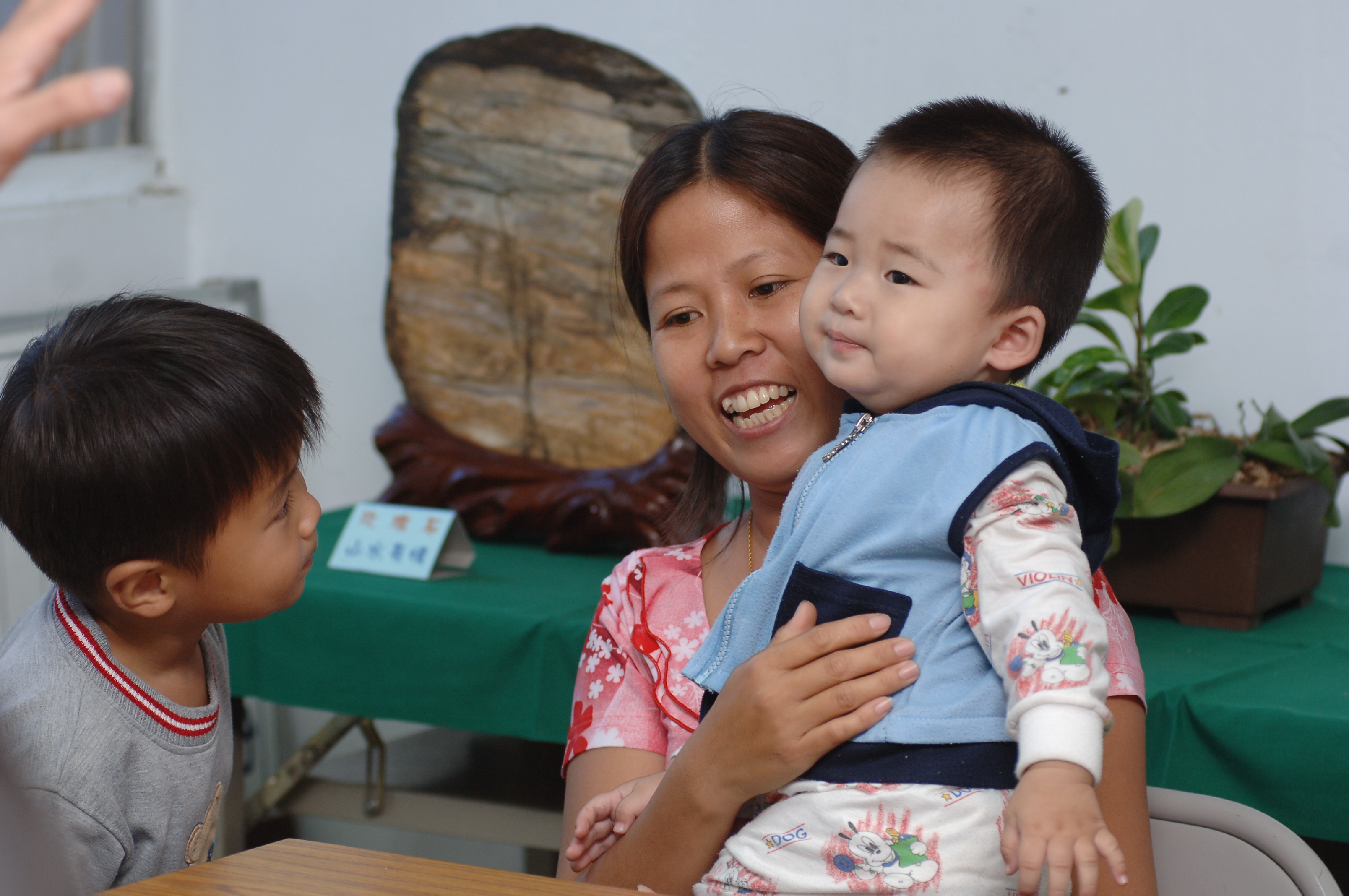
(Source: CommonWealth Mazagine)
The 93,000 spouses from Southeast Asia married to Taiwanese are changing Taiwan’s demographic composition. Just last year, of every 100 children born in Taiwan, eight were of mixed heritage.
“Taiwan is not a homogenous nation. It is similar to the American melting pot,” said a worker in the cultural sector. “We must learn how to get along with each other.”
This huge influx of immigrants will inject new blood into Taiwan’s cultural scene, the source argued, pointing to the new styles, new foods, new ways of thinking and new pop music brought by immigrants to Europe and the United States. It may also have a political effect.
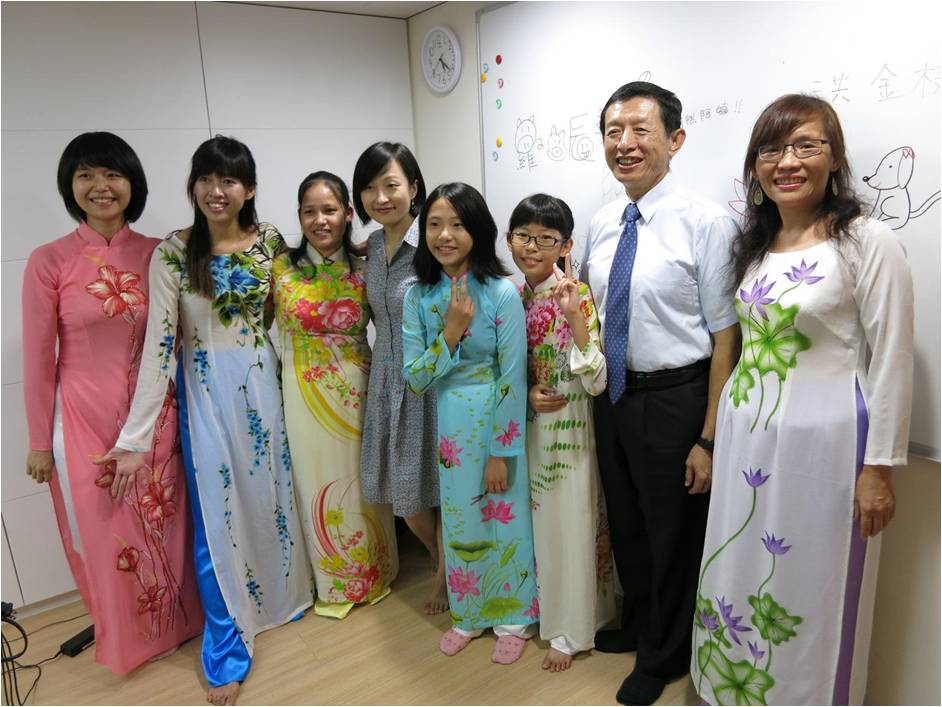
(Source: CommonWealth Mazagine)
Dramatic Rise in Chinese Spouses
The number of Chinese spouses in Taiwan has soared in the past three years to 154,000, nearly double the number from Southeast Asia. Of those, 148,000 are women. The Mainland Affairs Council (Taiwan’s main policymaking body on mainland China) has estimated that roughly 300,000 to 400,000 people from mainland China will obtain Taiwanese citizenship by 2015, and these “new mainlanders” will “easily be able to elect eight national legislators,” said Lin Ying-chuan (林應專), a former National Assembly member from Kaohsiung.
[Editor’s Note: At the time, Taiwan’s Legislative Yuan had 225 members, with multiple lawmakers elected in each district, meaning representatives of small parties or specific groups could be voted into office. That changed with the 2008 election, when the Legislature was downsized to 113 seats, and only one lawmaker was elected per district.]
Many individuals who have come from mainland China are getting into the act of joining with Taiwanese to support labor movements and team up with the New Party to affect cross-Taiwan Strait policy.
But Taiwan must also face another phenomenon – many of the Taiwanese who for more than a decade have married Southeast Asian and Chinese women generally come from lower socio-economic groups and live in more remote areas, or have disabilities. The island county of Penghu, for example, has the lowest disposable income per capita in the country and the highest percentage of brides of foreign origin, at 21 percent.
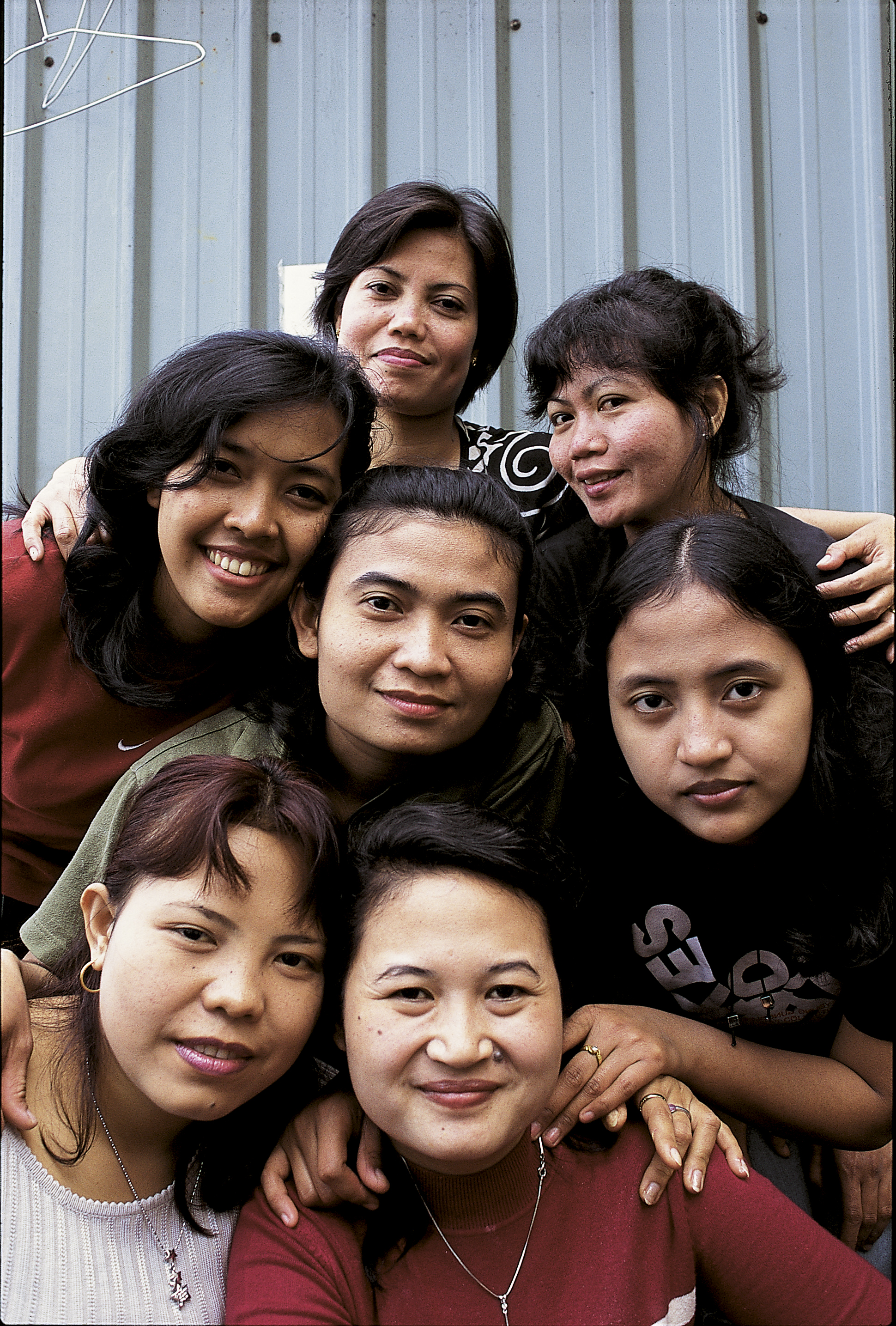
(Source: CommonWealth Mazagine)
In addition, the majority of women who come from abroad to get married were not well-educated in their home countries and are likely to have a harder time tutoring the next generation, making upward mobility for the children of these families a challenge.
Facing a lack of proper guidance and support and inadequate educational resources, the children of these immigrants are already at a disadvantage even before they get to the startling line.
Statistically speaking, Taiwan is now a net immigration country. Immigration has emerged as a hotly debated political issue in recent years, with many countries hoping to attract so-called “high-caliber” immigrants. Australia, Canada, and Singapore, for example, all welcome professionals with technical skills or capital to invest, and Germany has aggressively recruited high-tech specialists to strengthen the competitiveness of its information industry.
Taiwan, on the other hand, has not had a specific policy to attract highly skilled immigrants for many years and has no measures in place to help the many people who are entering the country learn the language, understand local customs and become better assimilated in society.
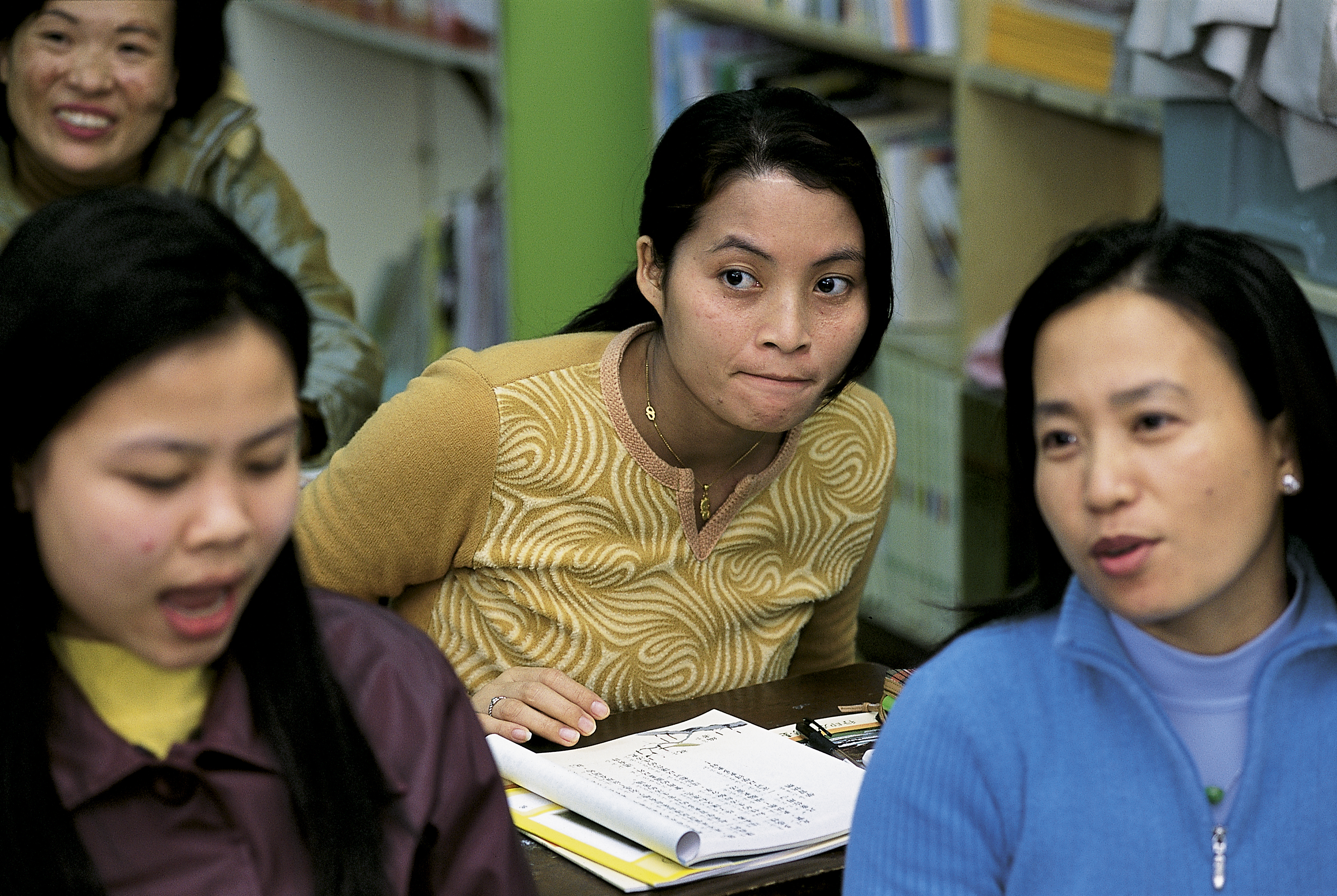
(Source: CommonWealth Mazagine)
Aside from literacy classes organized for spouses of foreign origin by the social welfare bureaus of cities and counties, few other avenues exist to learn new skills, and some of the city and county programs were even halted after a semester because of a lack of funding.
“Only about 10 percent of spouses took part in the literacy classes. They still need the support of their families,” said Deputy Education Minister Fan Sun-lu (范巽綠).
Taiwan’s industries are internationalized, as is its population, and the country’s treatment and government’s protection of migrant workers and spouses of foreign origin is bound to receive international scrutiny. Stories of Indonesian and Vietnamese wives being abused have become commonplace, and caregivers originally hired to care for an elderly member of a local family have also been forced to take care of the young and old and do household chores.
“Taiwan’s attitude toward migrant workers is like that of a Banana Republic,” said a German entrepreneur who frequently visits Taiwan.
Immigration Policy Urgently Needed
Premier Yu Shyi-kun (游錫堃) started focusing on the problem in January. He not only stated that he believed that the issue needed to be tackled at the central government level but also that several agencies needed to coordinate their efforts and draft regulations on supporting spouses of foreign origin. Such regulations would be geared toward broadening education options for adults, preventing domestic violence and strictly managing marriage brokers and agencies.
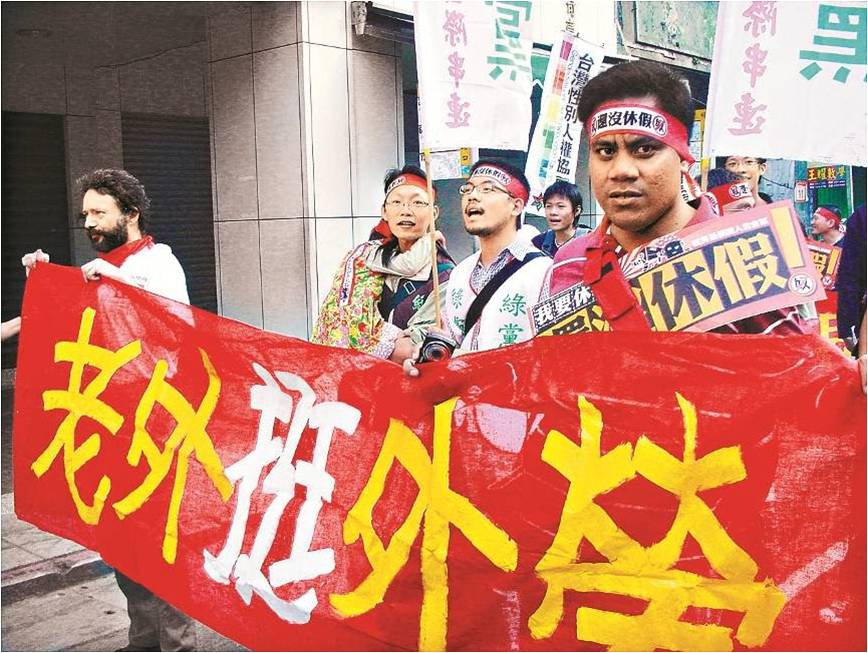
(Source: CommonWealth Mazagine)
Enacting such rules will take time, but could ultimately prove beneficial to Taiwan.
As The Economist wrote in an edition on immigration last year, “Immigration is always a gamble. But when it goes right, everyone wins.”
Have you read?
♦ The Rootless: Migrant Labor through the Eyes of the Oppressed
♦ My Experience as a Migrant Worker, Migrant Wife and Migrant Activist in Taiwan
♦ Winds of change: The radical potential of the Keelung Migrant Fishermen’s Union
Translated by Luke Sabatier
Edited by TC Lin
Uploaded by Penny Chiang






